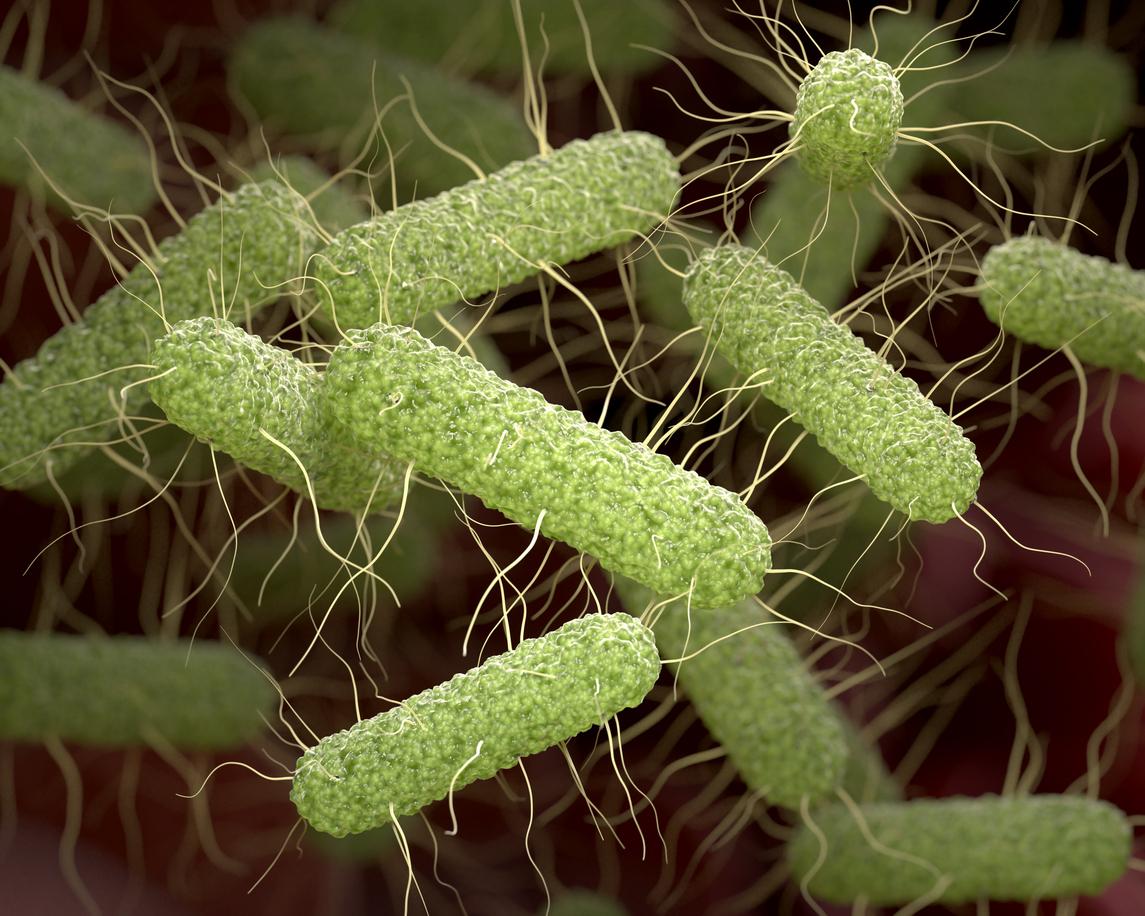An international team of researchers today reported promising results from a phase 1 trial of a novel vaccine designed to protect against typhoid fever and non-typhoidal Salmonella infections.
The team, led by investigators from the University of Maryland (UM) School of Medicine, reported that the trivalent (three-strain) Salmonella conjugate vaccine (TSVC) produced a strong immune response, and was safe and well-tolerated, in a small group of healthy US adults. The findings from the trial were published today in Nature Medicine.
The investigators say the findings are encouraging and provide a strong foundation for evaluating the vaccine in children. Typhoid fever and invasive non-typhoidal Salmonella (iNTS), which causes severe bloodstream infections, are leading causes of illness and death in children in Africa.
"A single vaccine that protects against both could be a game-changer for global pediatric health," UM School of Medicine Dean Mark Gladwin, MD, said in a university press release.
Vaccine elicits strong immune response
Developed jointly by UM School of Medicine's Center for Vaccine Development and Global Health (CVD) and Bharat Biotech International Limited, TSVC targets Salmonella enterica serovar Typhi, the leading cause of typhoid fever, and Salmonella enterica serovars Typhimurium and Enteritidis, which together account for roughly 90% of iNTS infections in young children. Typhoid fever caused an estimated 8,751 deaths in sub-Saharan Africa (SSA) in 2017, while iNTS caused an estimated 66,000 deaths, primarily among children, Gladwin noted.
The vaccine combines the Vi capsular polysaccharide from Bharat Biotech's licensed typhoid conjugate vaccine (Typbar TCV) with tetanus toxoid and core-plus-O-polysaccharides from the two most prevalent iNTS serovars, conjugated to two flagellin carrier proteins that enhance the body's immune response.
"Combination of the two iNTS conjugates with licensed Typbar TCV (Vi-TT) achieves a trivalent conjugate that is intended, collectively, to elicit protection against all the major invasive Salmonella pathogens that threaten young children in SSA," the authors wrote.
To test the safety of and immune response to TSVC, the investigators enrolled 22 healthy US adults (aged 18 to 45) and randomly assigned them to receive either a low dose (6.25-microgram [µg]) or a high dose (12.5 µg) of the vaccine, or a placebo. The primary safety end points were serious and non-serious adverse events, and the primary immunogenicity end point was the serum immunoglobulin G (IgG) response against the three vaccine polysaccharides and two flagellin carrier proteins.
A single vaccine that protects against both could be a game-changer for global pediatric health.
No serious adverse events were reported among the participants who received TCVS, and all solicited reactions were mild or moderate. Analysis of immunogenicity showed a strong immune response to all three polysaccharide components in all TCVS recipients no matter the dose at 28 days after vaccination, while the two flagellin components elicited a response in 7 of 8 volunteers who received the low dose and all who received the high dose. No response was observed in placebo recipients.
The investigators also observed the persistence of antibodies that were fourfold higher than at baseline among TCVS recipients more than a year after vaccination (the COVID-19 pandemic led to delays in collection of blood specimens).
Prior exposure to Salmonella may boost response
"These results are highly encouraging," said lead investigator Wilbur Chen, MD, chief of the adult clinical studies section within CVD. "They show that TSCV has the potential to protect children in regions where both typhoid and salmonella are endemic and deadly."
The vaccine could also help protect people in the United States and other high-income countries, where Salmonella Enteritidis and Typhimurium are rarely deadly but are common causes of foodborne illness. In fact, the investigators suggest that previous exposure to Salmonella among trial participants might have contributed to the strong and lasting immune response. Since the trial was so small, larger studies will be needed to confirm safety and the strong immune responses.
The investigators say a trial to assess safety and immunogenicity in young infants and toddlers in SSA is planned, along with a large phase 3 field trial to establish protective efficacy. They also want to assess whether TSCV can be co-administered with routine childhood vaccines.


















